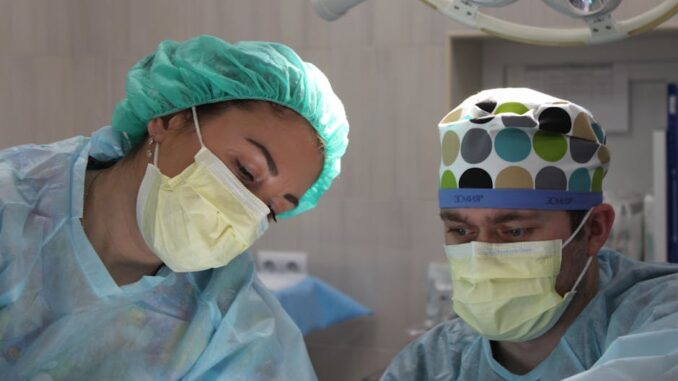
Summary
The world’s first successful human bladder transplant, a collaborative effort by USC and UCLA surgeons, offers new hope for patients with bladder dysfunction. The complex procedure involved transplanting both a kidney and bladder, with immediate positive results for the patient. This milestone marks a significant advancement in urologic surgery and organ transplantation.
Secure patient data with ease. See how TrueNAS offers self-healing data protection.
** Main Story**
Alright, let’s talk about this bladder transplant – it’s pretty incredible, right? Surgeons at Keck Medicine of USC and UCLA Health pulled off the world’s first successful human bladder transplant. Think about it: May 4, 2025, at Ronald Reagan UCLA Medical Center. Oscar Larrainzar, a 41-year-old who’d lost most of his bladder to cancer and was on dialysis for seven years, got a new kidney and a new bladder. It’s a total game-changer for anyone suffering from bladder problems.
A Delicate Dance: The Transplant Procedure
Why is this such a big deal? Well, transplanting a bladder is notoriously tricky. The pelvis is a maze of blood vessels, making the surgery incredibly complex. For years, a full bladder transplant felt like a pipe dream. This success? It’s the result of over four years of intense research. Dr. Nima Nassiri from UCLA and Dr. Inderbir Gill from USC really spearheaded the effort, developing new surgical techniques through tons of pre-clinical trials.
Their approach was pretty ingenious, actually. They transplanted the kidney first, followed by the bladder, and then carefully connected the two using a brand-new method. Can you imagine the precision? The whole operation clocked in at around eight hours! A whole team of surgeons, nurses, and other medical staff, were involved to get the best outcome for the patient,
It went as smooth as clockwork. Immediately, Larrainzar’s new kidney started producing urine, showing almost instant improvement, and the urine went right into the new bladder! No more dialysis. What a feeling it must have been for him to be able to urinate naturally again for the first time in seven years. I can only imagine…
A New Lease on Life for Bladder Patients
Before this, the options for severe bladder issues weren’t great. Doctors often had to use sections of the intestine to create a new bladder or a pathway for urine. These methods sometimes work, but they can lead to long-term issues like infections, kidney problems, and digestive troubles. That’s not ideal, is it? But a successful bladder transplant? It offers a much better solution, potentially leading to a way better quality of life for patients with end-stage bladder disease. It also highlights the need for improved aftercare for transplant patients.
What This Means for Surgery
This bladder transplant is a massive win for urologic surgery. It demonstrates that even the most complex organ transplants can be used to address previously untreatable conditions. Think about the possibilities! It sets the stage for more bladder transplants and encourages further research. The collaboration between USC and UCLA really shows how powerful these inter-institutional partnerships can be in medicine.
Of course, we need to carefully select patients and monitor them long-term to fully understand the risks and benefits. But, you know, this initial success offers so much hope. I remember hearing a presentation a few years back where they were talking about the challenges of this type of surgery, and to see it actually happen is pretty inspiring.
The AI Revolution: A Quick Sidebar
While we’re on the topic of medical advancements, let’s quickly touch on AI. Even though it’s not directly related to this bladder transplant, AI is changing medicine in some major ways. From diagnostics to drug discovery, personalized medicine, and even robotic surgery, it’s everywhere.
AI algorithms can analyze medical images with incredible accuracy, helping doctors detect diseases like cancer early on. They can also speed up the process of identifying drug targets and designing new molecules. By analyzing tons of patient data, AI can help create personalized treatment plans and predict patient outcomes. And, sure enough AI-powered robots are becoming more common in operating rooms assisting surgeons with complex procedures. It’s kind of wild, isn’t it?
AI is going to make healthcare professionals even more capable and help optimize how we use resources, ultimately improving patient care. As AI continues to evolve, it’s definitely going to play a huge role in the future of medicine. The way I see it, it’s an exciting time to be in this field, even with all the challenges. What do you think?


Be the first to comment